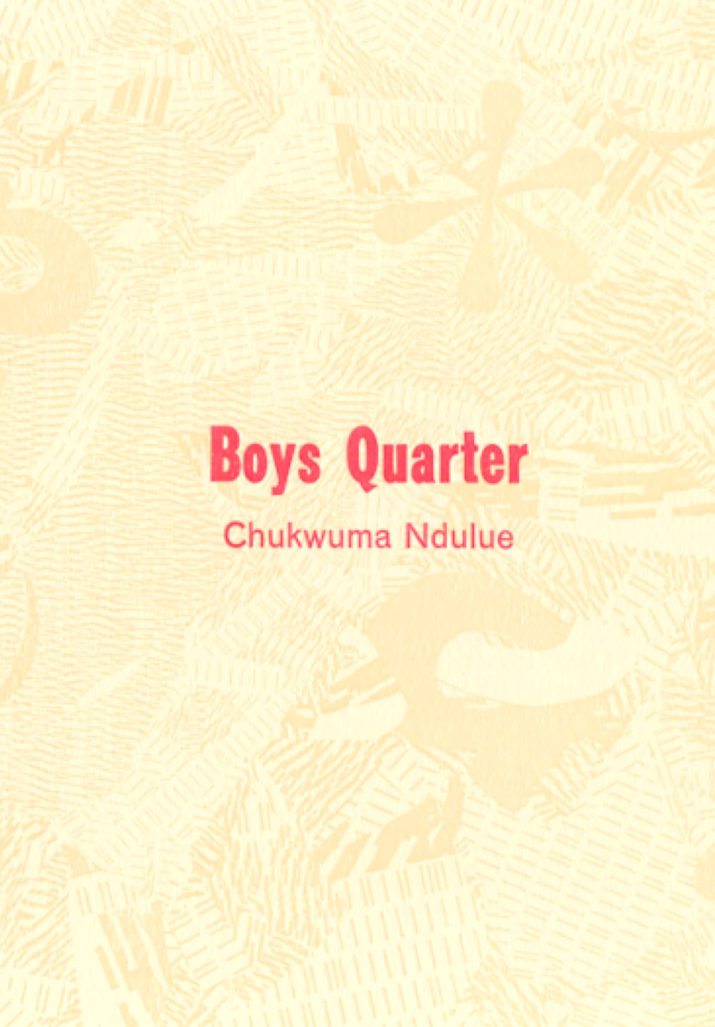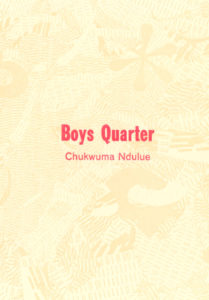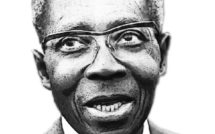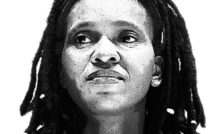

This is part of our special feature, Beyond Eurafrica: Encounters in a Globalized World.
“These are the things/ I never told you/ about the summers…”
Underneath the current of a Midwest river, the poet’s eyes have just burst open: Chukwuma Ndulue’s Boys Quarter rises. The chapbook’s first poem “Docks” begins with that promise and moves to the memory of
“The boys with
their flat and rosy
knuckles living
the dream of fighters
tangle, twist, ache.
What we did with little
reason: betray
the weaknesses
of disused lovers,
roll through parties
in sixes…”
Despite the green quickness and rowdy camaraderie of image in these lines, the tone of the syllables are brushed whispers of “rosy,” “twist,” “weaknesses,“ “disused,” and “sixes” and slow a’s of “tangle,” “ache,” and “betray.” Ndulue’s sonorous, rolling language untethers the signified from its immediate associations: things that bring pain are made gentle and the extraordinary becomes quotidien. In his debut chapbook, Ndulue directs the mind away from imagining stereotypes of times and places – whether Kentucky night or metropolis dawn – and coaxes the mind towards a sustained patience with language, one that quite melts the text into the reader.
And even before this first poem, Ndulue – an Igbo-American – has conjured a history. This is Boys Quarter, and while the title might define a separated place for the velocity of youthful freedom to run its course, like the one in “Docks,” it is drawn from the history of what is presently known as “Nigeria” (a name created by a British journalist). Boys’ quarters were the sequestered spaces in which servants were forced to live. By transforming the title phrase from plural possessive to simple noun – boys’ quarters to boys quarter – Ndulue shows that the term might be made more appropriate without its suggestion that those in captivity have some kind of legal ownership of their homes. The title is ambiguous, and its meanings couldn’t play a stronger tug-of-war. This disorienting tension is the heartbeat of this collection, leaving wide corridors for the reader to wander on her own if she chooses.
The chapbook’s epigraph is a stanza drawn from Hart Crane’s “Voyages,” in which a long-lived poet warns the youth of loss of innocence as they play on the strand (not unlike the poet in some of Boys Quarter’s poems). Crane inhabits this collection. I think of his lifetime infatuation with the ocean and its travelers. Gulls, oysters, sailors, wishes for rain – these things are atmospherically oceanic and do lace Boys Quarter. The sea is never far away. In fact, the moments at which I felt the full weight of water were in recurring references to drowning (Crane’s death was met at the end of a suicidal plunge into the Gulf of Mexico). Speaking from the belly of the city with memories of a Midwestern past, the poet prophesies “… the moon will soon/ dive into the Atlantic…” or asks, “… what has the water/ Been doing to your insides?” Even more explicit is the mentioning of a “lagan heart” or “drowning patron saints.” This ties into what I feel is one of the pinnacle triumphs of this collection: its declination to discover its revelations as the reader discovers them. This does not mean the language is attempting to conceal its tricks, for there are no tricks at play here – no need for them – but, rather, that it is written from both within and outside of the moment it conveys. The language of the poems, although each poem is often written in the present tense, is sentient of its own future, of its own drowning. In “Summer Skin Trade,”
“The sky has been good to my skin,
washing it with an idiosyncratic
azure, and surely this is why
I stay on the globe,
expectorating, wincing
at the sound of sliding casters—
this body susceptible to so many
tiny vehicles of demise.
So, while there is a declaration of survival, of a wish for continuity of this life, the “idiosyncratic/ azure” is a “washing” on the skin, one that has made the poet look “incredibly young.” Seems just as much a waterlogging death-ish lens as a sign of vivacity. And, if we are to take this condition as a healthful one, it is only seasonal, as the title of the poem suggests, arriving with the contract of its abandonment. This hazy future slopes omnipresent in the text. This self-assertion – “The sky has been good to my skin” – nods to a set of proclamations on the pages of Boys Quarter.
Ndulue creates an increasingly expansive idea of the self through continuous declarations of the self (re-enter Crane). In “Adamite,” the poet-speaker first tells of recent “conversations with street cats/… mostly in French”, of “playing a lot of scratch-/ off lottery tickets…”, of “being mulled/ and paired with drowning patron saints.” Although he is “not of modest man” and declares, “I welcome/ the sexual affectations of strangers, turndown/ threesomes out of selfishness…” This collection of activities would almost seem normal enough, although their tone lends them biblical proportions that defy any small, contained life. Indeed, the final lines declare, “I am become/ modernity, a lover, mere words.”
I haven’t been able to decide whether the poem’s final thought is lead up to or if it sweeps back over the poem, pouring newly distilled meaning into the pre-existing meanings. It is surely both. In this equation, the poet is seeing himself as a reflection of the world around him, seeing himself reflected in the world around him. “Mere words” acts a sign of fatigue, capturing the feeling of ones own inability to recreate life on the page as it was experienced. So, “modernity” becomes a mere condition; “a lover” becomes a mere label. This tender sardonicism bleeds the edges of our calloused protagonist, and within the passing days of his own life, a new discovery buds.
As the collection continues, moments of extreme change that are ambiguously hinted at throughout the collection are realized as in, for example, “The Limits:” “This is the season to hunch,/ shiver, snort oneself back to life” or in “Sacrifices at the Altar of Chicken:” “Bury me deep enough that the earth/ will push me into something new.” These moments – like so many in the chapbook – are resistant to compartmentalization. They elude a narrative of rebirth, because they suggest no true death, only a need to pry oneself away from oneself. They are not verbose, yet the delivery of each line seems to require a certain amount of strain to carry the weight of each word, as each word moves the poet from the stasis of the days he’s been recounting.
The horizons of this collection stretch with each poem, as its world grows to encompass more and more of a human’s history. I think of Henry Koerner’s Mirror of Life (1946). In his painting, Koerner depicts a man leaning out his window, peering behind the building in which he’s living (or staying). Behind him, half a dozen scenes transpire at once. These are both memories from his personal life – the painting is heavily, if not completely, biographical – and from our greater collective memory. Boys Quarter develops similarly. During the collection’s final poem – “Hierarchy of Needs:”
“This is the city made
of moments not days. Simple,
sincere in practice. You see
yourself across platform
riding the express,
and never thought you
looked that small.
As the heroes gallop
through the afterglow
are their endings ever
real?”
I was left here with an overwhelming impression of perseverance, of a strange breed of triumph after so much deciding what is required of an individual – emotionally and physically – in order for him to, simply, get by. In Koerner’s painting, the artist reflects on his own life, sees it behind him. In Ndulue’s poem, there is an added layer of reflection as the poet spots himself “across platform”, his entire life on his back. All those fragmented memories in the book seem to occur simultaneously, even as they unfold across decades and thousands of miles. Earlier in the poems, he’d actually been there, on that Brooklyn subway stop – in “Blown Out Candle Blues,” “A defeated fog loiters platform level.” – unable to pull away from himself. But now, as the poet regards himself, the reader understands she’s finally met him, the one who has been talking this whole time, who began all those poems ago, “These are the things/ I never told you.”
Reviewed by Naomi Falk
Boys Quarter
by Chukwuma Ndulue
Publisher: Ugly Duckling Presse
Chapbook / 32 pages / 2017
To read more book reviews, please click here.
Published on March 1, 2018.




